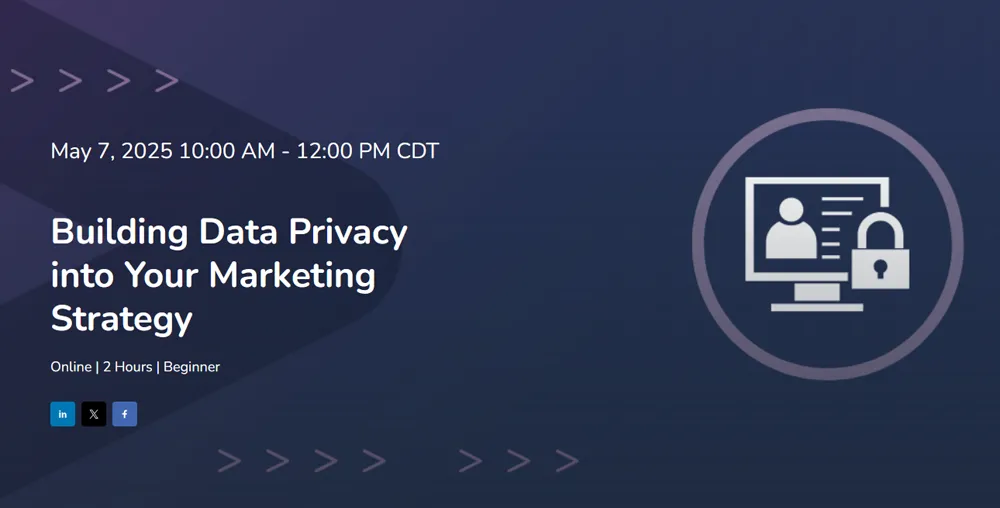Gone are those days when the marketplace was just a place for the transaction of goods and services in return for monetary benefits. With the advancement of digital technology in the field of advanced data sciences and big data management today’s business world is much more focused on the collection of mini to micro details and informational data of the entities.
But the question arises, what can be the use of someone’s personal data for influencing one’s business? Before answering that, let’s know how the most popular social marketing site makes money when the basic service which it offers is for absolutely free, then how does a multimillion dollar company generate its revenue?
Well as it is said, “If you are not paying for the product, you are the product.”
What companies do is, it collect the customer’s data by providing them their service for free. Now these data collected can be used to categorize the users on the basis of the data provided by them in form of their personal information and now they can easily be wooed by marketing companies on the basis of their choices which makes it easy for the advertiser to focus on the selected client range while it enhances customer experience, they also get the choices related to the field of their own interest. The customer data can be varied from his personal to professional details starting as easy as their name to sometimes as critical as their account details. Such a varied range of customer’s data can be both utilized and exploited by a different organization.
In today’s era data is the major fuel to accomplish any task from start to the end of the business procedure. A quality data starts playing it role directly from targeting the market scope and analyzing the prior success of the marketing campaign. Suppose if we are in the business of selling cosmetics for girls in a particular area than a prior accumulation of all the targeted clients becomes easy just by having the data information of all the females in that area, it makes it easy to sort out the potential clients.
Customer’s data provides a great help to the company to understand its customer much better and to draft services and policies to make the customer experience much better. Knowing your customer even before real interaction with them, makes it easy to close a deal, as an early preparation can be conducted on how to approach specific customers and influence them to buy a certain product or service, a proposal can be made so fascinating which they can’t say No to, this can be done just by collecting and analyzing the customers information and data regarding his likes and interests. Even after resolving its purpose of closing a sale the data can be further utilized to maintain future relations and approaching the customer whenever in need and also creating a scope of repeat business. Referrals can also be generated from the data of previous clients for the scalability of the network, like which is done by many networking sites either by providing them suggestions or generating suggestions from their data, either directly or indirectly.
Privacy matters to the customers.
Consumers have become more connected and are constantly sharing their information online. They are using online products and services, also researching and purchasing them. Now a day’s people share their preferences as part of interactions on social media and search sites. All of this consumer data is being collected by desktop and mobile apps, internet providers and mobile operators for their own purposes or to sell to other industries.
In many cases, customers are willing to share information like photos, opinions, and locations on Facebook, Snapchat, and Twitter. But, when it comes to other, often like highly personal aspects of their life — health, wealth and family — they are more protective. Now people are more concerned about businesses gathering and selling personal information without consent. This means that customers are thinking about their privacy when they visit a company’s website or app.
For a company recording the customer data may be a necessary step for processing payments and conducting marketing. But it’s also a huge responsibility to maintain the customer’s privacy. When customers share their information, they trust your business to keep it safe. And if you fail to do so, they’ll be more in favor to take their business to another place.
As said by Tim Cook, CEO of Apple
“We shouldn’t ask our customers to make a tradeoff between privacy and security. We need to offer them the best of both. Ultimately, protecting someone else’s data protects all of us.”
Hence to protect customer’s privacy every business should take the following steps:
- Carry a data privacy survey
The first step is to understand what customer data you need for your business. How the company will collect the data, how the data will be stored, how the data will be kept secured, this all questions should be answered in the first step.
- Don’t gather more than you need.
Minimize customer data collection and preservation. It is recommended to collect and store data that is only needed by the company for their services. Sometimes companies gather extra information because they think they might need it in the future. But doing so can increase the risk. Data can be lost or stolen by hackers and once the trust is gone it is hard to retain them back.
- Protect the data you keep.
Many businesses keep personal information about customers in their files or on their network. Having a complete security plan in place to keep the data security can help to meet the legal obligations of protecting the data. Hence make sure you have a secured network, databases and website.
- Tell about your privacy policy.
Having clear privacy policies can help customers to trust you more. This will also ensure the customers that your business appears transparent and honest. It is important that customer trust our business, so make your customer aware of how you value their privacy. Give them knowledge of your business internal policies which protect them and their information.
- Answer customer’s privacy-related questions.
Provide an email address or an online forum to customers for sharing their privacy problems and concerns. Respond to the messages, this helps to build trust and loyalty towards the customers.
These are a few ideas which will go a long way on safeguarding the customer’s privacy as well as protecting your business.









Comments are closed.